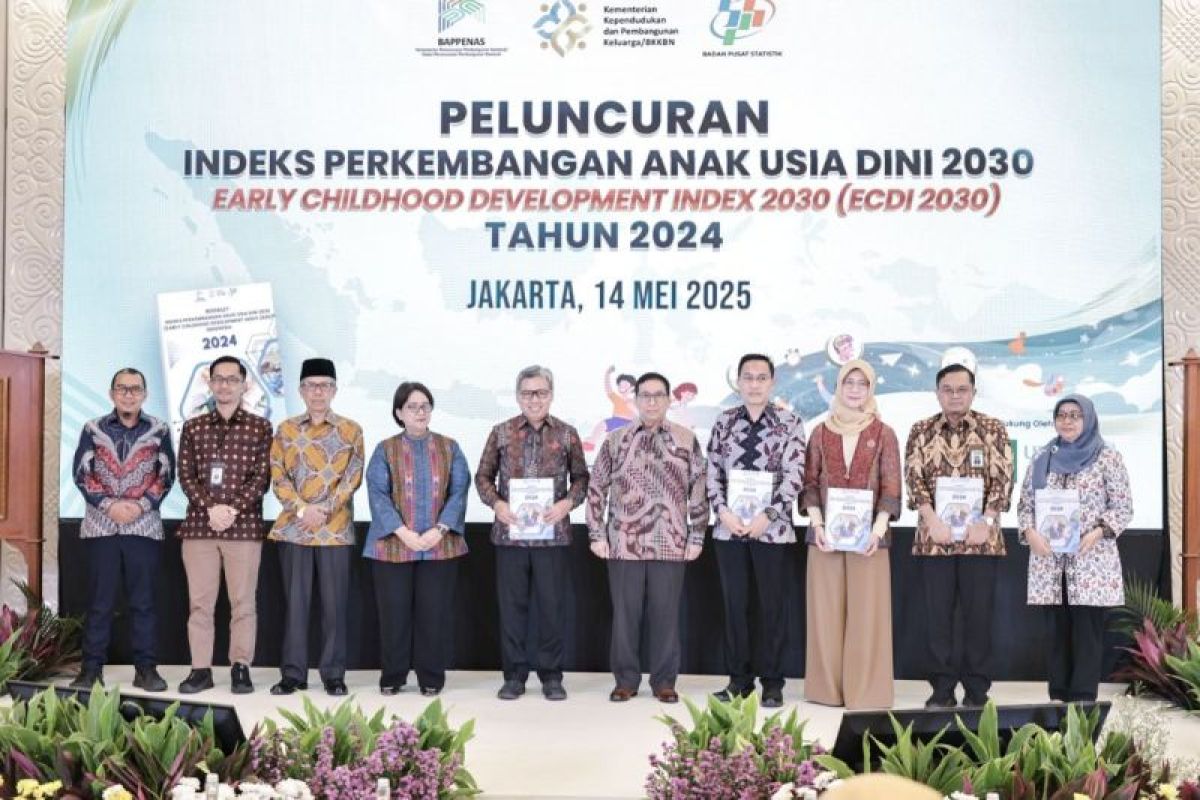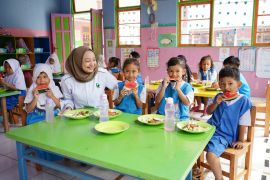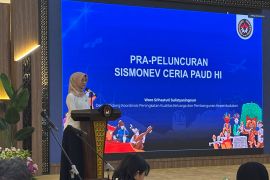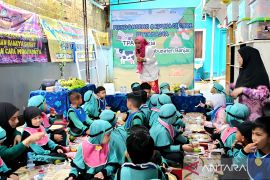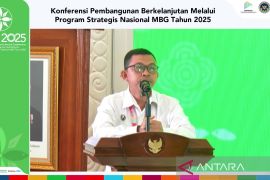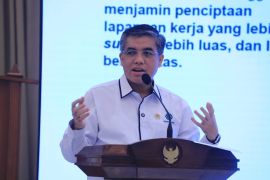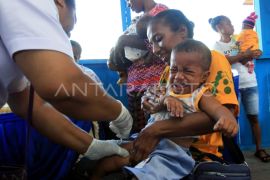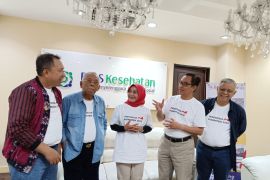According to Deputy Minister of National Development Planning Febrian A. Ruddyard, the key to achieving the Golden Indonesia 2045 vision is to fulfill the essential needs of children from an early age, including education, health, and care protection.
Investing in children from an early age is important, as 90 percent of a child’s brain development occurs before age five, which is known as the golden years.
“We must always remember to fulfill (the needs of) our children, our future generation, especially during their so-called golden years,” Febrian stated at the launch of the Early Childhood Development Index (ECDI) 2030 here on Wednesday (May 14).
"We are all doing this for them (children), not for ourselves. The changes we imagine will not happen in the short term, but (depend on) how we prepare them to lead this nation later,” he added.
The ECDI 2030 document was prepared by the Ministry of National Development Planning along with the Central Statistics Agency (BPS), UNICEF, and the Tanoto Foundation, based on a survey conducted from December 2023 to May 2024.
Related news: Preparation of quality generation starts from the family: ministry
This index serves as a strategic tool to ensure responsive policies for child growth and development, as well as to support quality human resources, which are key to driving inclusive and competitive economic growth.
Febrian also emphasized the urgency of early childhood education (PAUD), which is positively correlated to the development of children's sensory, cognitive, and language skills.
According to 2024 measurements, the ECDI found that 87.7 percent of Indonesian children aged 24-59 months had developed according to the stages in development, learning, welfare, psychosocial, and health.
He expressed hope that ECDI 2030 would become a vital instrument for formulating data-based policies to guarantee every Indonesian child's right to optimal growth and development.
Hence, collaboration among the central government, local governments, development partners, experts, academics, and the community is essential.
"I believe the children are our future. Teach them well and let them lead the way. Show them all the beauty they possess inside," Febrian concluded.
Related news: Indonesia shares best practices on child-friendly spaces with S'pore
Translator: M. Baqir Idrus Alatas, Yashinta Difa
Editor: Yuni Arisandy Sinaga
Copyright © ANTARA 2025
